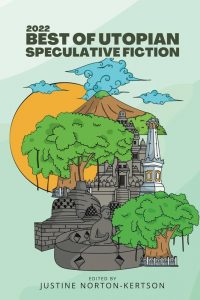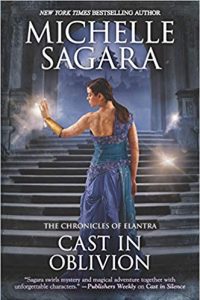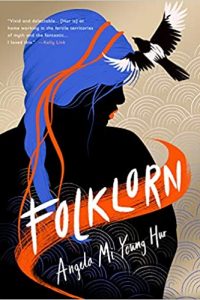Alexandra Pierce Reviews 2022 Best of Utopian Speculative Fiction edited by Justine Norton-Kertson
 2022 Best of Utopian Speculative Fiction, Justine Norton-Kertson, ed. (Android Press 978-1-95812-166-5, $21.99, 240pp, tp) December 2023.
2022 Best of Utopian Speculative Fiction, Justine Norton-Kertson, ed. (Android Press 978-1-95812-166-5, $21.99, 240pp, tp) December 2023.
In their follow-up to Bioluminescent: A Lunarpunk Anthology, Justine Norton-Kertson has assembled a range of stories that suggest different ways of thinking about “utopia.” Going into this anthology I had clear expectations of what “utopia” meant and what these stories would probably look like: societies would be shown as having figured out how to avoid hierarchy and conflict and lack; individuals would be encouraged to find fulfilment on their own terms rather than someone else’s… they would be along those lines. However, these stories are not what I expected. There are no societies where everything has been figured out, and everyone is happy; rather, the stories are generally about becoming, rather than being. In their introduction, Norton-Kertson writes of stories that “insist upon the existence of a world where humanity, technology, and nature entwine in harmonious dance” and that resist the allure of the dystopia. The idea of hope – for society and for individuals – is the overwhelming theme.
Some of my favorite stories were ones that presented a strong vision for how a utopia might come about. Jetse de Vries, in “Zen and the Art of Gaia Maintenance”, envisages groups working in different regions around the world, confronting different social and environmental issues, to bring balance and sustainability to a world only just slightly in our future. It’s almost more a manifesto than a story, and it’s an intriguing way to open the anthology. Phoebe Wagner does a similar thing on a smaller scale in “University, Speaking”. Here, a university (literally the buildings and grounds) seeks to break away from being a space restricted to elites, with gardens that are beautiful but not functional. They whisper to all who can hear them, eventually creating something wonderful for its people and the surrounding city; the story itself is an inspiring one about making connections and using spaces in new ways. And the final story in the anthology, “If we can do this, we can stop asteroids”, is an excerpt from a novel by Andrew Dana Hudson. It’s appropriate that it concludes the anthology, because it’s very much about the beginnings of what might become a utopia. Set during COP60 and after a devastating storm, it imagines how individuals and groups might work together in the moment – cleaning up storm damage – as well as work towards a future, even when that requires negotiation and concessions. It’s a story that challenges the reader: “Here, take these approaches and dreams and see if they might work now.”
Two other favorite stories focus on smaller groups. In Susan Kaye Quinn’s “Seven Sisters”, a collective have deliberately set up a tea plantation on land that was once a cotton plantation, speaking to the colonial and imperial history of both crops. They grow and sell their tea, and educate folk about tea’s history. The Seven Sisters community is a welcoming one within a world that is experiencing all-too-familiar problems, especially people becoming climate refugees. It’s an example of individuals defying wider paradigms, creating their own society. Renan Bernardo presents almost the inverse of this in “Look to the Sky, My Love”. Here, the narrator is visiting Solândia’s June Party, which is a glimpse of the utopian – an epic party, a welcoming and loving society, that’s also environmentally sustainable. The narrator feels guilty at being there because he is mourning his partner, but other characters, and the story itself, never suggest that grief is inappropriate; instead, grief is allowed to exist, with a recognition that its present immensity won’t last forever.
Norton-Kertson’s introduction promises that this is the first annual best of utopian speculative fiction anthology; emphasizing the hopeful and positive is something to look forward to.
Alexandra Pierce reads, writes, podcasts, cooks and knits; she’s Australian and a feminist. She was a host of the Hugo Award winning podcast Galactic Suburbia for a decade; her new podcast is all about indie bookshops and is called Paper Defiance. Alex has edited two award-winning non-fiction anthologies, Letters to Tiptree and Luminscent Threads: Connections to Octavia E Butler. She reviews a wide range of books at www.randomalex.net.
This review and more like it in the March 2024 issue of Locus.
 While you are here, please take a moment to support Locus with a one-time or recurring donation. We rely on reader donations to keep the magazine and site going, and would like to keep the site paywall free, but WE NEED YOUR FINANCIAL SUPPORT to continue quality coverage of the science fiction and fantasy field.
While you are here, please take a moment to support Locus with a one-time or recurring donation. We rely on reader donations to keep the magazine and site going, and would like to keep the site paywall free, but WE NEED YOUR FINANCIAL SUPPORT to continue quality coverage of the science fiction and fantasy field.
©Locus Magazine. Copyrighted material may not be republished without permission of LSFF.






